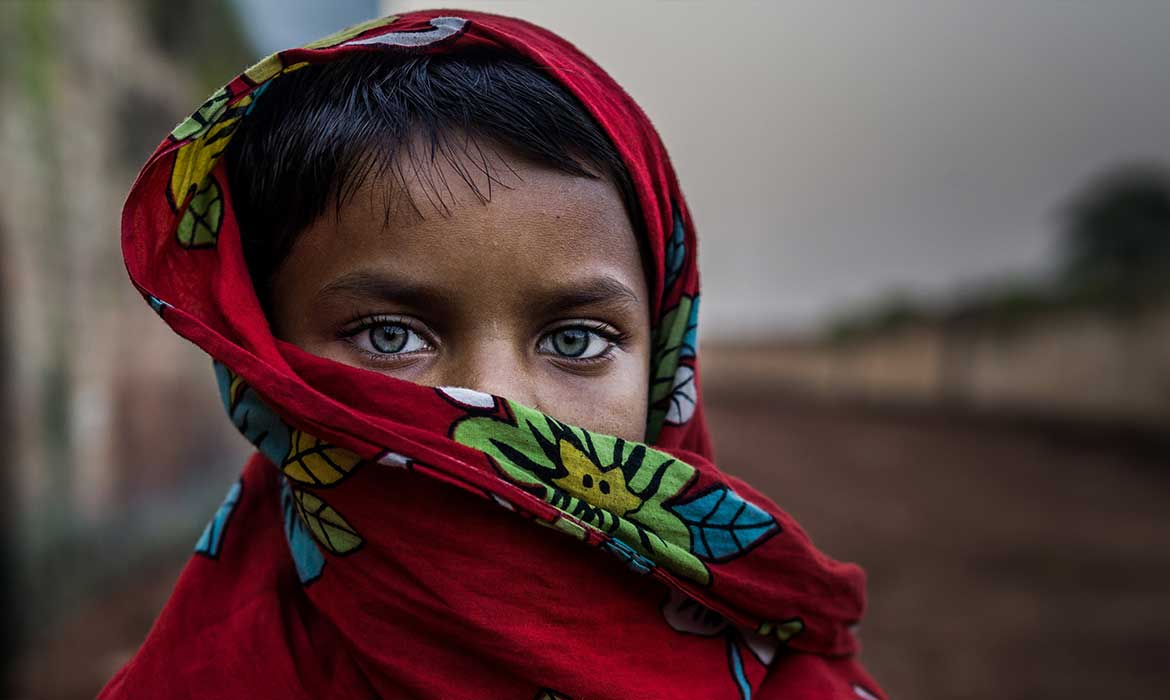I read something about Americans that I think is true: the first rule in our culture is self-preservation. We do everything in our power to extend our lives, to protect our lives, to improve our lives, and to guard our lives, but this is not an idea we’ve inherited from Christianity. The prevailing characteristic I have found among persecuted believers is not self-preservation but self-sacrifice.
We look at persecuted Christians strangely from within our safe Christianity, but these days I’m wondering whether it is even Christianity that we have within our safety. Do we have authentic faith, or do we have a “form of godliness with no power” (see 2 Timothy 3:5)? It’s worth asking the question, because Jesus says, “Everyone who denies me here on earth, I will also deny before my Father in heaven” (Matthew 10:33, NLT).

We will always have a lopsided Christianity if we are not exposed to the reality of suffering in the world. Our faith— for two thousand years— has never been complete without either being exposed ourselves to persecution or living in proximity to those who are persecuted.
So we struggle to be bold, because we’ve never known the power of God that rises up in believers only when they face suffering for their faith.
We will never experience full Christian discipleship if we aren’t persecuted or if we aren’t praying for, praying with, or living along-side those who are persecuted.

Ours is necessarily a suffering faith— Christ himself suffered, and we are to be like him— and it has been that way for two thousand years. And so without that part of the story— of our own stories— then our faith will be incomplete.
We must get closer to the persecuted church.
In order to stand with our persecuted brothers and sisters, we must first understand the reality and gravity of the oppression they face. See the infographic below to learn more about The Global War on Christianity.
 The Martyr’s Oath by Johnnie Moore
The Martyr’s Oath by Johnnie Moore
We are witnessing an astonishing escalation in Christian persecution like we have rarely seen since the first century. Some estimate that every five minutes, a Christian is martyred for his or her faith. Countries like Egypt have experienced more Christian persecution in the last five years than in the previous six hundred years combined. And who could have missed the atrocities of ISIS in Syria, Boko Haram in Nigeria, and the continued persecution of Christians in North Korea?
Johnnie Moore, like many American Christians, didn’t fully appreciate the extent of what was going on—until he witnessed the graduation of theology students in India. Unlike graduation ceremonies in America—where feel-good speeches made by visiting celebrities are common—this one featured a remarkable oath. It wasn’t an oath to excel or succeed. It was an oath to be willing to die, if necessary, for the cause of Christ. This was no empty promise. This was a choice, choosing the eternal over the temporal.
Johnnie knew he was witnessing a raw, first-century Christianity that his comfortable American version had shielded him from. “For the first time, I really understand my faith,” says Johnnie Moore. Now, he’s on a mission to give this same experience to others. He and his team have crisscrossed the world, recorders in hand, gathering eyewitness accounts from dozens of people who survived persecution—and the stories of some who didn’t.
Join Johnnie Moore on this compelling journey to the heart of the Christian faith.






1 Comments
[…] First-century persecution in the twenty-first century— while horrific and evil— is also producing a first-century harvest of millions coming to follow Jesus in the most miraculous ways and from the most unlikely places. […]